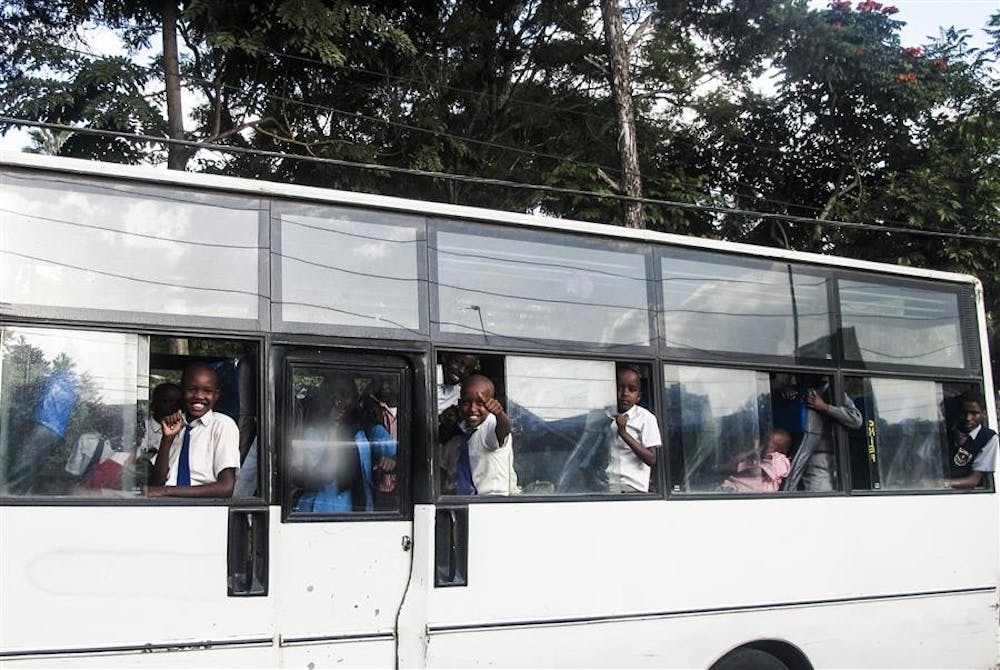In fifth grade, my teacher told my parents I had an attitude problem. I still do sometimes, but in America we can all say that is a common attribute, right?
I have been in Kenya for almost a week and a half, and I have never spent so much time shaking hands, saying “hello, good morning” and meeting so many new people.
Walking down the street, vegetable sellers smile and say hello to us, the 12 white girls in missionary skirts and sunburned faces.
Shaking hands is the initial greeting when meeting someone in Kenya, whether meeting him or her for the first time or seeing an old friend. Abraham Mulwo, a professor at Moi University in Eldoret, Kenya, told us not shaking hands upon introduction is extremely rude.
When we met our Kenyan partners, the 12 Moi University students we are teaming up with to report on HIV/AIDS in Kenya, it was a long line of hand-shaking and awkward smiles as we tried to remember how to say hello.
In Swahili, the official language of Africa, there are several different versions of greetings that we can say to people. “Jambo,” “Hodi” and “Sasa” all mean hello, and “habari yako” means “how are you?” So when being introduced there is a rushed blur of words and phrases and hopefully you responded with the right answer.
“Just answer ‘nzuri’ to any question, and you should be okay,” IU School of Journalism professor Jim Kelly said. Nzuri means “good” or “fine” in Swahili.
Bit by bit, we are picking up on the everyday phrases spoken by our partners and have learned that people pointing and yelling “Mzungo” at us, is not meant to be an insult.
Our first encounter with this was passing a school bus filled with little boys coming home from school. With huge smiles on their faces they shouted, “Mzungo, mzungo!” like we were the coolest things on the road.
Even when walking through the hospital and the AMPATH building (the organization between Indiana and Moi University) in Eldoret, and while reporting on our stories, we were all amazed at how open and willing everyone was to talk to us and share their story.
The doctors make time out of their extremely busy days to explain the conditions of their lives and duties while working with the patients.
Yesterday, my partner, Allylah Msenya, and I were personally taken to nutrition specialists by another contact to gain more information needed for our story. From there, we met with a client who was in the office to get her ARVS and monthly supply of food supplement.
Though she only spoke Swahili, she was willing to talk freely about her status and troubles she faces in life.
To Allylah, the openness and ability to easily find people who are happy to give you whatever help you need seemed completely normal.
In America, I feel like journalists are stereotyped by what people see on TV. People think of the microphone in your face, imagining someone who only cares about getting the story no matter the cost.
When talking to professionals back home, I try to take as little time as possible, seeing as they did not want to fit me into their day in the first place.
Kenya is different. The doctors want to help journalists, the patients in the hospital want to tell their story and we, as journalists want to portray this as much we can.
In America, there is a strong sense of secrecy in people, to shy away from others or ignore arising problems.
In Kenya, the people of the hospital and AMPATH welcome all who need help or are there to give it. I almost feel like part of the community, and that is a good feeling.
— campbjes@indiana.edu
'Jambo,' not 'hello.'

Get stories like this in your inbox
Subscribe



